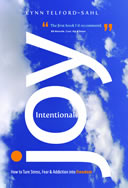The Wealthy Barber Says Break the "Gotta Have It Now" Habit
 Tuesday, October 4, 2011 at 9:07AM
Tuesday, October 4, 2011 at 9:07AM  3 Comments
3 Comments Why do we make our financial life so difficult when it doesn’t have to be? One reason is that we want to feel better right now and our consumer culture loves to prime the “I work so hard, I deserve something” pump. Feeling stressed, unhappy, dissatisfied? Buy something – that’ll make everything better - temporarily... Except that after the initial glow wears off – usually by the time you get home – remorse or guilt set in, along with the now monthly payment that goes on and on. Yow.

 You know how sometimes we know better, but we do something against our financial best interest anyway? One of my clients, “John,” hates his job, is super stressed and is sticking it out for his pension that is a long 5 years away. What do you think he and his wife just did? They bought 2 new cars so now they have two big payments a month. If something were to happen to John or to his wife so that they couldn’t work…. Well, you get the picture.
You know how sometimes we know better, but we do something against our financial best interest anyway? One of my clients, “John,” hates his job, is super stressed and is sticking it out for his pension that is a long 5 years away. What do you think he and his wife just did? They bought 2 new cars so now they have two big payments a month. If something were to happen to John or to his wife so that they couldn’t work…. Well, you get the picture.
“The Wealthy Barber” was a smash bestseller a few years ago and the author David Chilton is at it again with ‘The Wealthy Barber Returns.” What does Chilton think we should do with our money? 1) Save, save, save. Pay yourself 10-15% of your NET income a year. On a $50,000 annual salary that’d be 5,000 – 7,500 a year or $400-580 a month. (The only relatively painless way to do this is to create an automatic deducation from paycheck to savings/retirement account) 2) Live modestly. According to the mortgage lender you might be able to afford a house payment that’s 30% of your gross income, but what do you have to do without to afford it. 3) Keep track of everything you spend for the next 3 months. I’ve done it and it’s eye-opening how much money we can piddle away on coffee, lunch or stuff we don’t really need. Chilton would say that banks, mortgage lenders, atms, are not your friends and that “…real wealth comes from saving, not high income.”
from paycheck to savings/retirement account) 2) Live modestly. According to the mortgage lender you might be able to afford a house payment that’s 30% of your gross income, but what do you have to do without to afford it. 3) Keep track of everything you spend for the next 3 months. I’ve done it and it’s eye-opening how much money we can piddle away on coffee, lunch or stuff we don’t really need. Chilton would say that banks, mortgage lenders, atms, are not your friends and that “…real wealth comes from saving, not high income.”
 Lynn Telford-Sahl tagged
Lynn Telford-Sahl tagged  bankruptcy modesto,
bankruptcy modesto,  budget help,
budget help,  budget help modesto,
budget help modesto,  budget problems,
budget problems,  david chilton,
david chilton,  financial anxiety,
financial anxiety,  financial help,
financial help,  financial stress,
financial stress,  money addiction,
money addiction,  money stress,
money stress,  wealthy barber
wealthy barber









